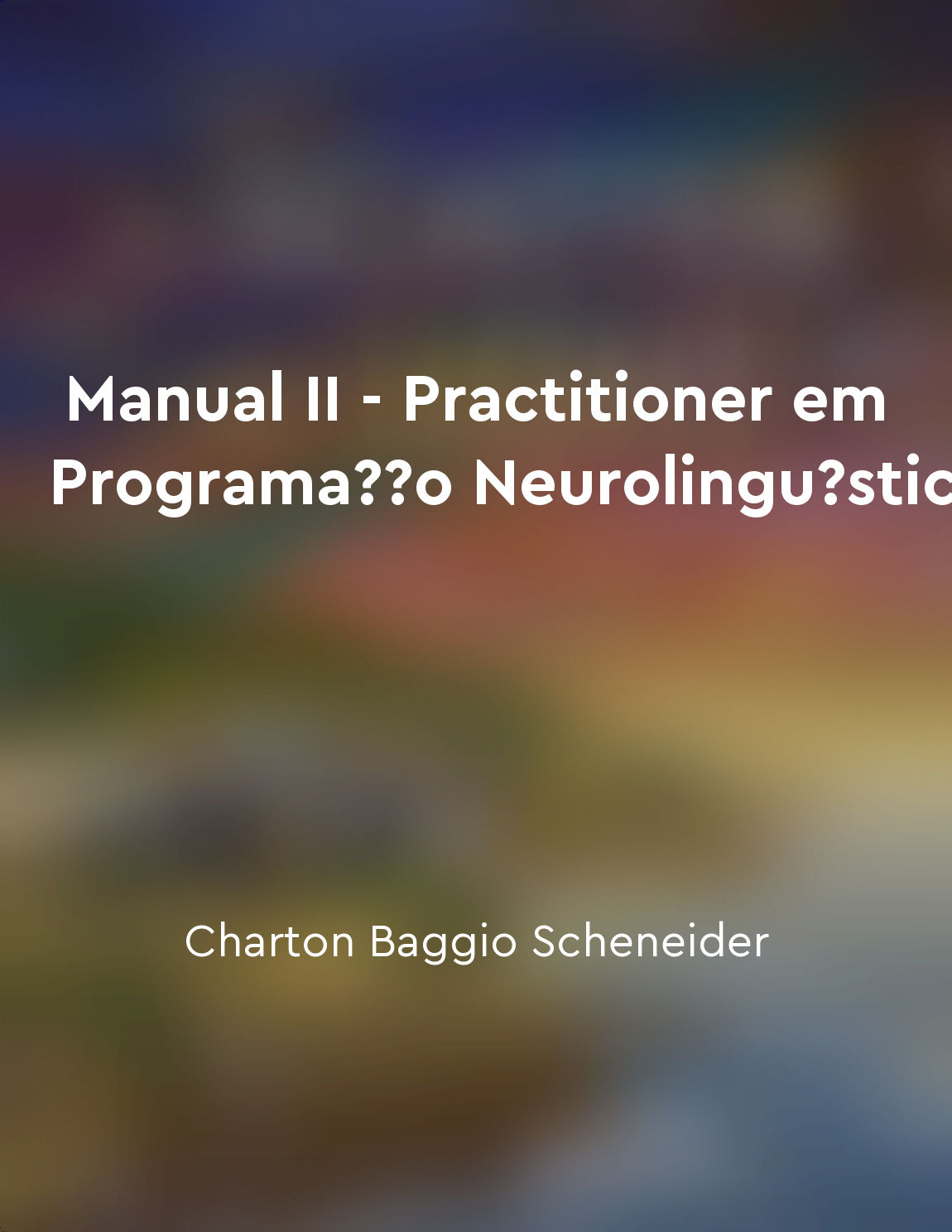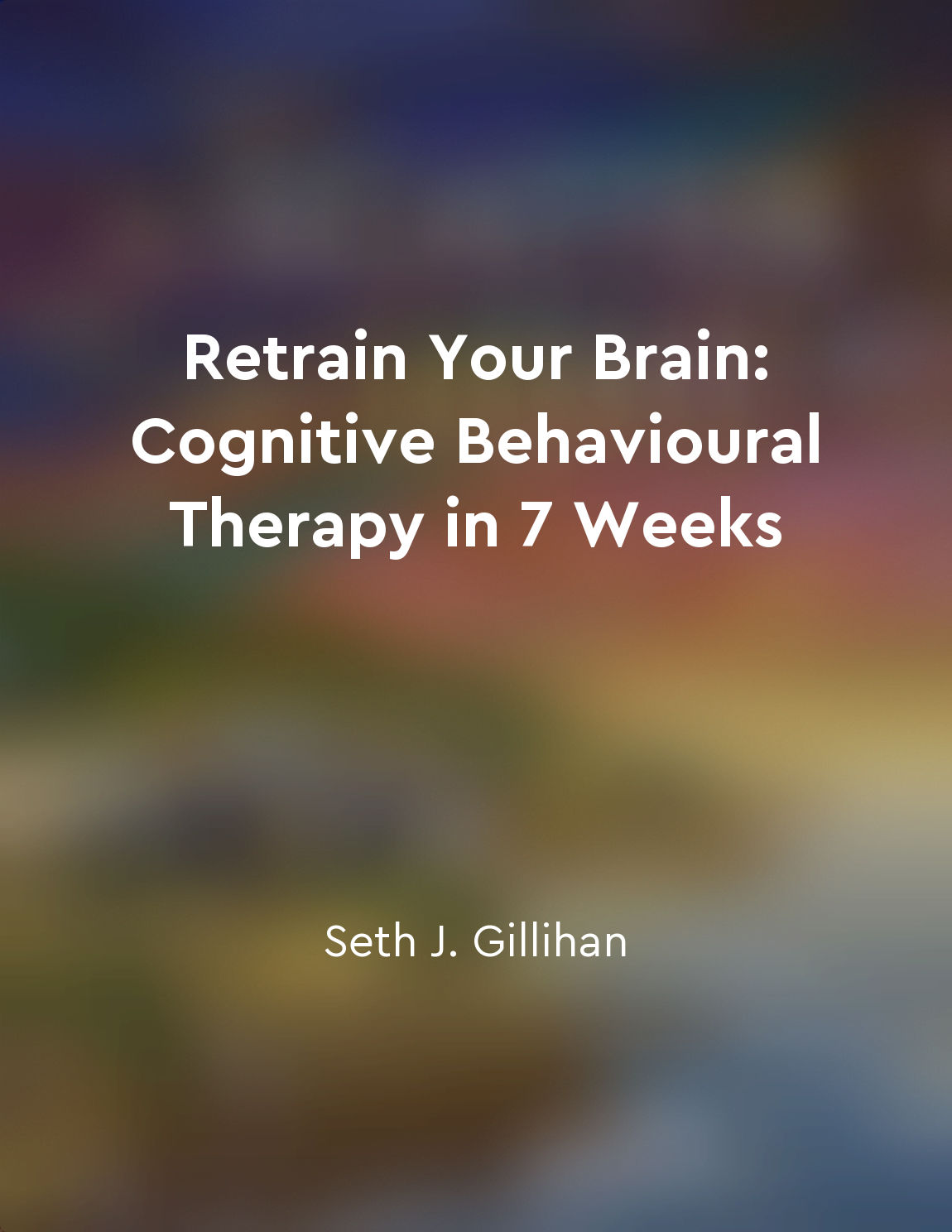Audio available in app
Recognizing early warning signs of anxiety can prevent escalation from "summary" of Cognitive Therapy of Anxiety Disorders by David A. Clark,Aaron T. Beck
An important aspect of managing anxiety is being able to identify the early signs that indicate a potential escalation of symptoms. By recognizing these warning signs, individuals can take proactive steps to prevent the anxiety from intensifying. This process involves becoming more attuned to one's thoughts, feelings, and physical sensations that may precede a full-blown anxiety episode. Early warning signs of anxiety can manifest in various ways, depending on the individual and the specific type of anxiety disorder. These signs may include racing thoughts, restlessness, muscle tension, increased heart rate, sweating, and difficulty concentrating. By paying attention to these subtle cues, individuals can intervene before the anxiety becomes overwhelming. In cognitive therapy, clients are taught to develop a heightened awareness of their internal experiences and to monitor for any changes that may indicate a shift towards increased anxiety. This self-monitoring process involves keeping track of triggers, thoughts, and bodily sensations that accompany anxious feelings. By tracking these patterns over time, individuals can gain insights into the factors that contribute to their anxiety and learn to identify warning signs early on. Once early warning signs are identified, individuals can implement coping strategies to manage their anxiety more effectively. These strategies may include relaxation techniques, cognitive restructuring, and problem-solving skills. By addressing the anxiety at its onset, individuals can prevent it from escalating into a full-blown panic attack or prolonged period of distress.- The ability to recognize early warning signs of anxiety is a crucial skill in managing anxiety disorders. By being proactive and addressing symptoms early on, individuals can prevent the escalation of anxiety and maintain better control over their emotional well-being. This self-awareness and proactive approach are key components of cognitive therapy for anxiety disorders.
Similar Posts
Transform setbacks into learning opportunities
When challenges arise in our lives, it is easy to become discouraged and disheartened. However, it is important to remember tha...
Meditate to center yourself
When we meditate, we create a space for ourselves to simply be. In a world filled with constant activity and distractions, it i...
Managing anxiety
Anxiety is a natural emotion that can be useful in small doses, but it becomes a problem when it dominates our thinking and dec...
Foster selfawareness
Fostering self-awareness is the key to understanding why we think, feel, and act the way we do. It is about taking the time to ...

Techniques for effective communication
Effective communication is a crucial skill for building rapport and creating meaningful connections with others. It involves th...

Find ways to enjoy your life
One of the key principles to living a fulfilling life is to actively seek out opportunities for enjoyment. This means making a ...
Identify your strengths to build confidence in yourself
To build confidence in yourself, it is important to identify your strengths. Recognizing what you are good at can be a powerful...
Trust yourself to make rapid choices
When it comes to making decisions, especially in high-pressure situations, your gut instinct can be your best friend. Trusting ...
Build confidence and selfesteem
Building confidence and self-esteem is a critical component of overall mental well-being. When individuals feel positive about ...

Address cognitive distortions
Addressing cognitive distortions involves recognizing and challenging the negative thought patterns that can skew our perceptio...

